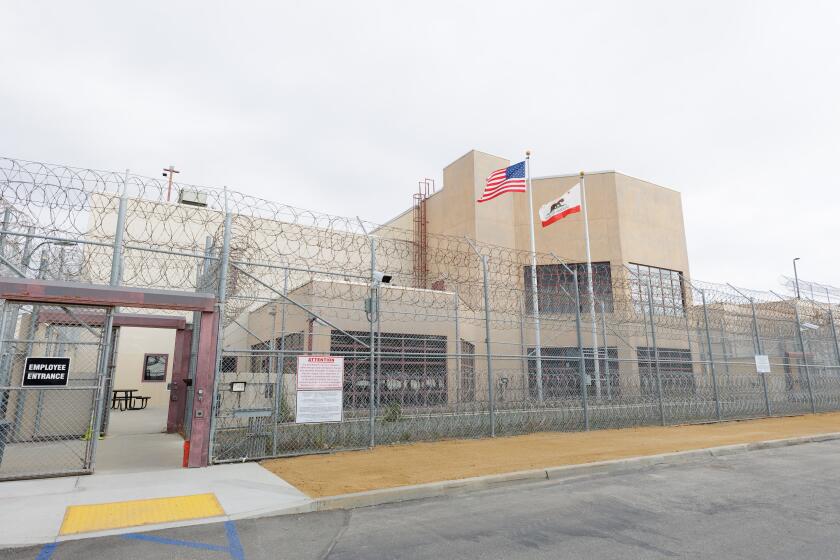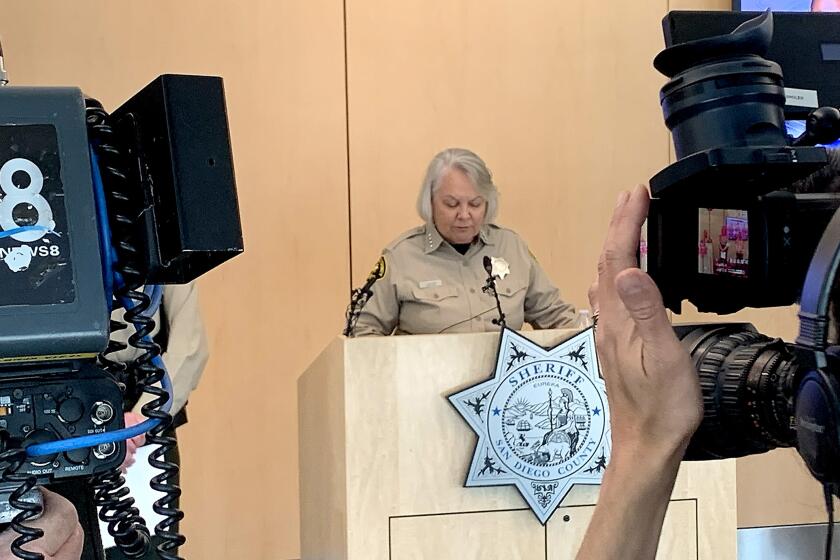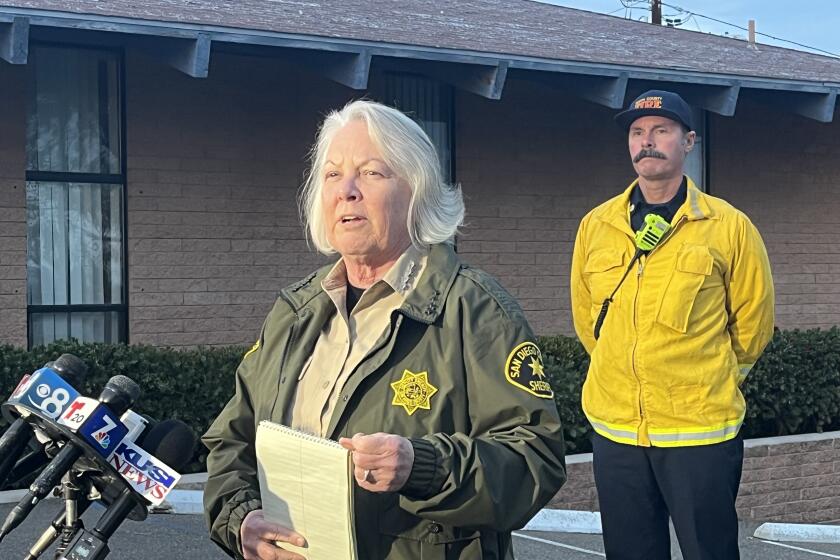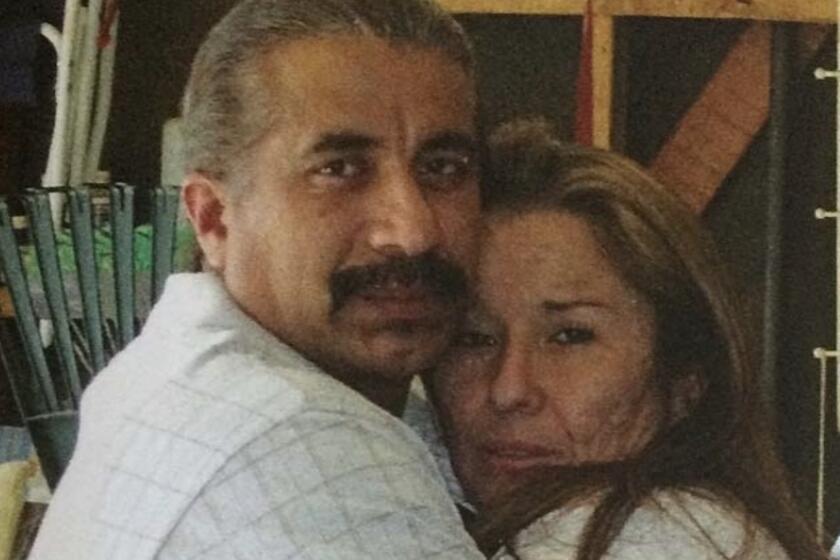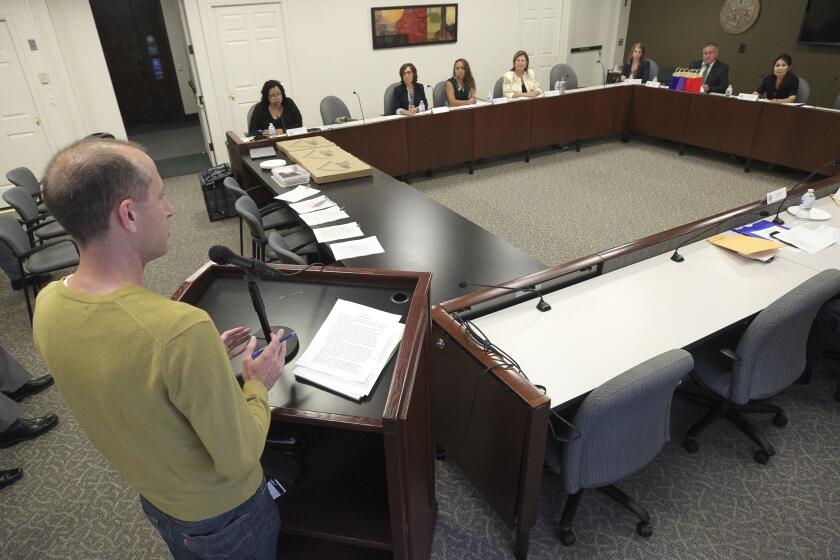San Diego County citizens’ review board votes for reforms, to expand its authority
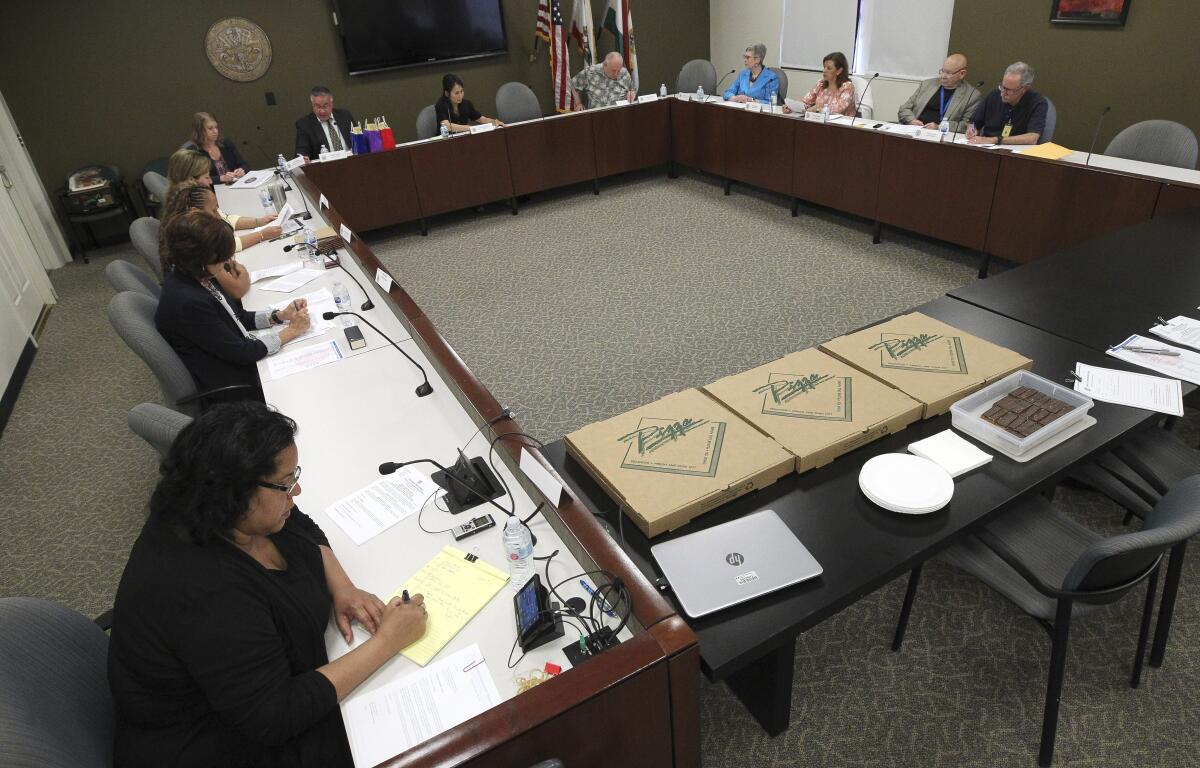
San Diego County supervisors and sheriff will have to approve proposed reforms
The volunteer citizen’s panel that provides oversight of the San Diego County sheriff’s and probation departments has embraced the idea of expanding its authority and pushing for legislation that would open its investigations to the public.
At its meeting late Tuesday, the Citizens’ Law Enforcement Review Board approved each of several measures put forward by Executive Officer Paul Parker. The goal of the reforms, Parker said, was to boost public trust in how the board investigates in-custody deaths and allegations of misconduct.
Among the measures, Parker sought to expand the board’s oversight to include medical workers inside the county’s jails and juvenile detention facilities. The board’s jurisdiction is currently limited to looking into whether policy violations by sheriff’s deputies or probation officers played a role in a detainee’s death.
The ability to interview medical staff will lead to more thorough investigations, Parker said.
“If we cannot look at the care provided to people in custody of the sheriff’s department or probation, we really are not getting the full picture,” he said.
In a letter to the board and during public testimony, the president of the union that represents jail medical and mental health workers urged board members to examine whether mandatory overtime or staffing shortages contribute to lapses in care.
Service Employees International Union Local 221 President Crystal Irving said she also wants investigators to ask whether medical decisions were directed by law enforcement, by medical professionals or a combination of the two.
Jail medical workers have complained that law enforcement personnel often ignore their recommendations, she said.
“We strongly recommend that changes to CLERB’s jurisdiction include these recommendations so that important information might come to light regarding the unsafe conditions at the San Diego County jails,” she wrote.
Parker also received board approval to ask the Sheriff’s Department to allow him or a qualified investigator to attend death-scene investigations. Currently his investigators must wait until the sheriff’s homicide team completes its own investigation, which can take months, he said.
The board also agreed to allow Parker to ask the Sheriff’s Department to stop routinely requesting that autopsy reports of people who died in custody be sealed. This practice limits the information available to CLERB and next-of-kin, Parker said.
“The whole point of CLERB’s existence was to provide transparent investigations,” he said at the meeting. “If it’s not transparent, really, what purpose are we serving?”
If approved by the Board of Supervisors and endorsed by Sheriff Bill Gore, the reforms proposed by Parker would represent the biggest change in how the review board operates since it was established three decades ago.
Among the changes, review board investigators would no longer rely solely on sheriff’s department or probation records to conduct their investigations into complaints of misconduct or in-custody deaths.
Parker said he would also like to see changes to state law that limits the information that law enforcement review boards can share with the public. Under current law, the board can issue only summaries of its investigations.
County Board of Supervisors Chairman Nathan Fletcher has been generally supportive of Parker’s recommendations.
In 2020, he boosted the review board’s budget to allow the hiring of additional investigators, and last week he said in a statement that part of the effort to improve conditions inside county jails was to expand the review board’s jurisdiction.
Gore has been less specific about his position on the proposed changes.
Sheriff’s spokeswoman Lt. Amber Baggs has issued several statements saying the sheriff supports the review board’s mission and the department’s commitment to transparency.
But she has declined to say whether Gore would agree to allow review board investigators at death scenes or if he will stop requesting that autopsy reports be sealed for in-custody deaths.
The meeting was held remotely due to the ongoing COVID-19 pandemic. Nonetheless, more than a dozen speakers offered testimony in support of a tougher and more responsive review board.
“We need to get all of the information that’s available,” said Laila Aziz, of Pillars of the Community, a southeastern San Diego nonprofit that focuses on community organizing and leadership development.
Vigilant citizen oversight of local police and sheriff’s deputies is critical to effective law enforcement, added Darwin Fishman from the Racial Justice Coalition of San Diego and the North County Equity and Justice Coalition.
“CLERB is one of the last or only places where people can get a sense of justice,” he said.
Former Sheriff’s Department Cmdr. David Myers called the reforms “much needed” and said anti-transparency laws mean the oversight panel is operating “with one hand tied behind its back.”
Myers lost a 2018 challenge to unseat Gore, and this summer announced he is again running for sheriff next year.
Multiple speakers argued that review board investigators need to be able to access prior records of misconduct by sheriff’s deputies and probation officers in order to do their job effectively. Under state law, most law enforcement personnel records are private.
“We need oversight to be able to look in and reveal these patterns” of misconduct, said Yusef Miller, also of the Racial Justice Coalition.
The Citizens’ Law Enforcement Review Board was first organized in the early 1990s, during another era when the Sheriff’s Department was facing heavy criticism from community members.
According to former employees and public records, however, the review board was not always provided enough money or staff to meet its responsibilities.
In 2017, the panel summarily dismissed almost two dozen death cases due to a one-year time limit on investigations lapsing.
The review board’s fortunes have begun to change, however. Over the past two budget cycles, the Board of Supervisors has boosted both the staff and budget of the citizens’ review board.
Get Essential San Diego, weekday mornings
Get top headlines from the Union-Tribune in your inbox weekday mornings, including top news, local, sports, business, entertainment and opinion.
You may occasionally receive promotional content from the San Diego Union-Tribune.




